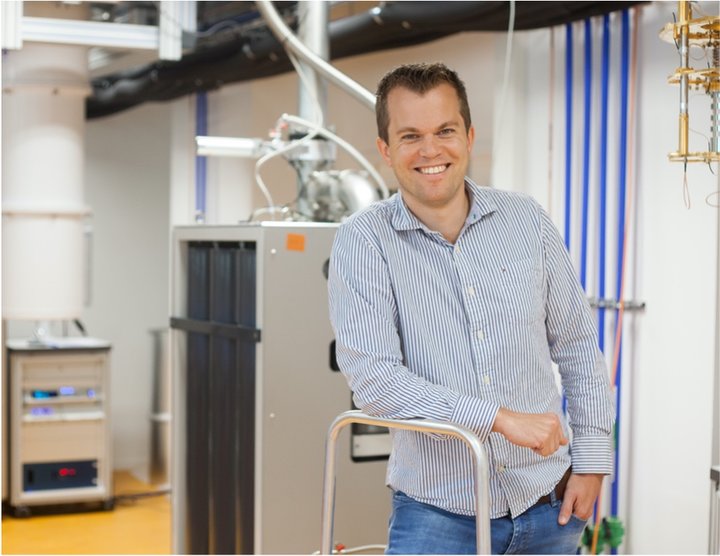On behalf of all colleagues within QuTech, we are proud to present the annual report for 2019.
At QuTech, we work together on radically new technology with world-changing potential: based on the fundamental laws of quantum particles, we aim to develop scalable prototypes of a quantum computer and an inherently safe quantum internet. Quantum technology is labelled by the Dutch government as a key technology because it is considered a potential game-changer in many social and economic sectors, including health, agriculture, climate, and safety.
This report presents a brief overview of what we achieved in 2019, in terms of research and engineering, collaboration and community building, education and outreach, and people and prizes. We are happy to report strong results.
Key developments in the last year include:
- In January, a top-level international committee chaired by prof. Robbert Dijkgraaf reviewed the research done at QuTech. In their evaluation report the committee concluded it was “unreservedly positive about the success of QuTech”. We are delighted that the committee strongly endorsed our institute and we are using their valuable advice for the future development of our institute.
- Together with other stakeholders in the Netherlands, QuTech identified what is needed in the coming years to maintain and strengthen the pioneering role of the Netherlands in the field of quantum technology. The outcome, the National Agenda Quantum Technology, was presented to State Secretary Mona Keijzer.
- QuTech teamed up with KPN to realize a Dutch quantum internet testbed. On the European level, 24 EU member states including The Netherlands agreed to work together to explore how to create a quantum communication infrastructure in Europe.
- We celebrated a lot of research progress, pushing the theoretical and experimental envelope, while working hard on two demonstrators - Quantum Link and Quantum Inspire - with the aim of making quantum internet and quantum computing accessible to anyone interested in experiencing or using it. To further strengthen our research efforts, we have attracted a new principal investigator, Johannes Borregaard, who will start in 2020 on theory and protocols for quantum networking.
- Finally, starting October 2019, QuTech has evolved from an institute in the Faculty of Applied Sciences to a separate organizational entity within TU Delft, reflecting its increased importance and interdisciplinary nature. This change will increase the visibility and operational effectiveness of QuTech.
We hope you will enjoy reading this annual report.
Ronald Hanson
Scientific Director
Kees Eijkel
Director of Business Development
Charlotte van Hees
Director of Operations
Board of Directors, QuTech

In my lab, we are currently betting on silicon and germanium as the quantum materials for the future quantum computer. In 2019, we showed for the first time that silicon qubits can be operated even at temperatures above one Kelvin. This opens perspectives for quantum integrated circuits that host both qubits and control circuitry. With germanium, we showed that we can execute full two-qubit logic. This was a fascinating result, even more so because we had only been working on it for about two years. What fascinates me most is that we have to be creative at all levels, from fabrication to design, from experiment to analysis. I simply love to solve these puzzles, in particular when other people say that they can’t be done. I’m not someone to take “no” for an answer.
At the same time, I think that being a parent has helped me to put things in perspective and become more flexible. When I come home after work, it is typically rush hour and I instantly have to switch to an entirely different mode. When my kids are in bed, I typically have fresh ideas and can continue to solve the puzzle.
- Menno Veldhorst